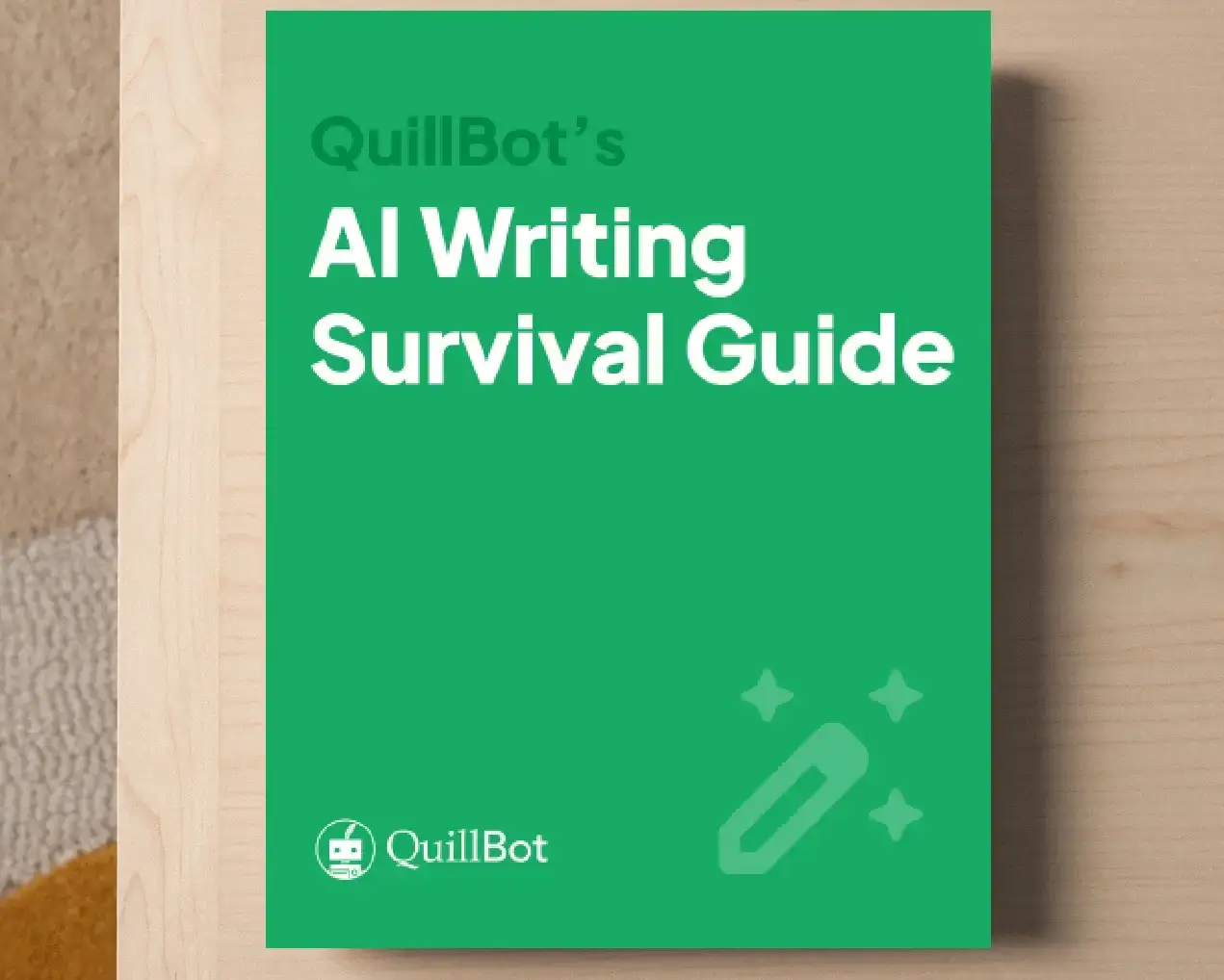10 Effective Writing Tips to Boost Your Skills & Confidence
Almost all writers face challenges with organizing ideas, including the right details, and using precise word choices.
Effective writing is a skill that you can refine and sharpen with the right techniques. Some of the most effective ways to improve your writing include researching your topic, outlining before you write, and getting feedback.
The tips and examples below show how to strengthen your writing skills at any level and for any audience. Keep reading to learn how you can become more confident with academic essays, professional emails, job application materials, and more.
QuillBot’s suite of AI tools can also help you write more effectively and confidently.
Table of contents
- Make a to-do list for each writing project
- Set a writing routine that works for you
- Review examples from experienced writers
- Research relevant sources
- Outline your ideas before writing a draft
- Experiment with sentence structure
- Get feedback from writing experts
- Revise your writing for clarity and impact
- Proofread and edit your writing
- Keep an error log
Make a to-do list for each writing project
When you begin a writing project, make a to-do list of the steps to complete it. Then, set goals about when you’ll complete each step. This technique makes the writing process more manageable and less daunting. The following example shows how someone would set goals for writing a resume.
- Review sample resumes on LinkedIn
- Gather key words from relevant job descriptions
- Write the resume summary
- Write descriptions of my last 3 jobs
- Write a list of my main skills
Monday night: Email resume to Becca for feedback
Tuesday:
- Implement feedback
- Proofread and edit
- Submit to the online application portal
Set a writing routine that works for you
A writing routine will help you improve your skills and form positive habits. When you’re working on different writing tasks, pay close attention to what times of the day are most productive. At which times of the day are you more inspired, energetic, or focused? Also consider the times of each day when you have fewer distractions.
Whether it’s morning, afternoon, or evening, schedule your writing for the time of day that works best for you, and stick to that schedule.
When she writes after dinner, the ideas come more quickly and she’s able to stay focused for longer. She sets a writing routine to work on essays from 7–10 p.m. Monday–Thursday.
Review examples from experienced writers
Each time you start a new writing task, read examples from experienced writers who wrote something similar. For example, if you’re about to write a LinkedIn summary or letter of interest, review examples from career writing experts or successful LinkedIn users in your field.
For essay assignments, request examples from your instructor or read examples by academic writing experts. For example, many of the academic writing articles on QuillBot’s blog include examples for different essay types (e.g., rhetorical analysis).
Research relevant sources
Whether you’re citing sources or not, almost every type of writing will be more effective if you do some research first. The type of research that you need to do varies with each type of writing. Here are some tips to help you research effectively for different writing tasks.
- Academic essays: Look for articles in academic journals or from professional organizations that specialize in the topic you’re writing about. Who are the go-to experts on your topic?
- Job applications: Research the company website to find details about their mission and culture so that you can tailor your cover letter or resume to the company’s needs. Also research the keywords that are prevalent in the job posting or the profession.
- Creative writing: Before you write fiction or poetry, research the time period and location where the action will take place. You might also do some research on psychology or human behavior to develop your characters.
Even for smaller tasks, such as emailing an instructor, you might need to research the class policies, look something up on a website, and so on. The more informed you are before you write, the more convincing your message will be.
- Outlining: Review articles from experts in order to choose logical and convincing body paragraph topics.
- Drafting: After you make an outline, use your body paragraph topics as search phrases to gather relevant supporting details.
- Revising: After you have a first draft, look for places where you need more evidence, and do further research to fill in gaps or make your body paragraphs stronger.
Outline your ideas before writing a draft
Planning or outlining your ideas makes the writing process go more smoothly and results in first drafts that are more organized. To make a plan, follow these steps:
- Decide how many paragraphs the final product should include.
- Choose a topic for each paragraph. If you’re working on a letter, research paper, or other type of formal prose, the first paragraph is the introduction, and the last paragraph is the conclusion. The body paragraphs in the middle each need a specific topic.
- Beneath each paragraph topic, make a list of details you plan to include.
- Review your plan, and make adjustments as needed. You might also share your plan with your instructor, a colleague, or another expert for feedback.
The following essay outline example shows how to start this process for a literary analysis essay. After making this list of paragraph topics, the student would list examples from the novel under each body paragraph topic.
- Introduction
- How the point of view supports the theme
- How the use of irony supports the theme
- How symbolism supports the theme
- How diction supports the theme
- Conclusion
Experiment with sentence structure
As you’re writing each draft, use a variety of sentence types to keep your readers engaged and your ideas flowing smoothly. Pay close attention to when you’re using each of the following:
- Simple sentences with one subject and verb
- Compound sentences with two independent clauses
- Complex sentences with a dependent clause and an independent clause
- Compound-complex sentences with at least one dependent clause and two or more independent clauses
Use short sentences to emphasize important points and longer sentences to draw connections. Avoid long strings of the same sentence structure. The following example shows how to vary sentence structure in a cover letter.
Get feedback from writing experts
After you write a draft, get feedback from a colleague, classmate, instructor, supervisor, or other expert. Ask your feedbacker to show you places in the draft that could use more detail, additional explanation, or other revisions.
After you get feedback, reflect on your writing strengths and areas for improvement. Then, the next time you’re working on a writing project, pay special attention to these areas. This process will help you develop more self-awareness and continue improving.
Revise your writing for clarity and impact
Try to do at least one revision for each writing project that you complete. Remember that revising and editing are not the same. Revising involves adding ideas, adjusting the structure, or removing details that aren’t relevant. Editing is a later stage in the writing process that involves fixing any mistakes with grammar or punctuation.
The following questions can help you revise many types of professional and academic writing:
- Does your introduction prepare readers for the body paragraphs?
- How well does each body paragraph support your main purpose?
- Does each body paragraph focus on a single idea?
- Do the body paragraphs begin with clear topic sentence?
- Are any paragraphs less developed than others?
- Is your tone appropriate for the topic and context?
Proofread and edit your writing
Always proofread and edit your work before you click “send,” submit to an instructor, or add it to a job application portal. Not only does this step improve the clarity of your current writing task, but it also improves your grammar and punctuation skills over time.
A quick and easy way to proofread is by running your draft through QuillBot’s free Grammar Checker. When it shows you each mistake, read the explanation before you accept the change and move on to the next one.
Keep an error log
Proofreading and editing is even more impactful when you keep an error log (a list of your most frequent errors and their corrections). You might also add a short explanation of each error so that you remember why your original choice was incorrect.
- Would of
- Would have or would’ve
Cite this QuillBot article
We encourage the use of reliable sources in all types of writing. You can copy and paste the citation or click the "Cite this article" button to automatically add it to our free Citation Generator.
Routh, N. (2026, January 15). 10 Effective Writing Tips to Boost Your Skills & Confidence. Quillbot. Retrieved February 13, 2026, from https://quillbot.com/blog/writing/writing-tips/

